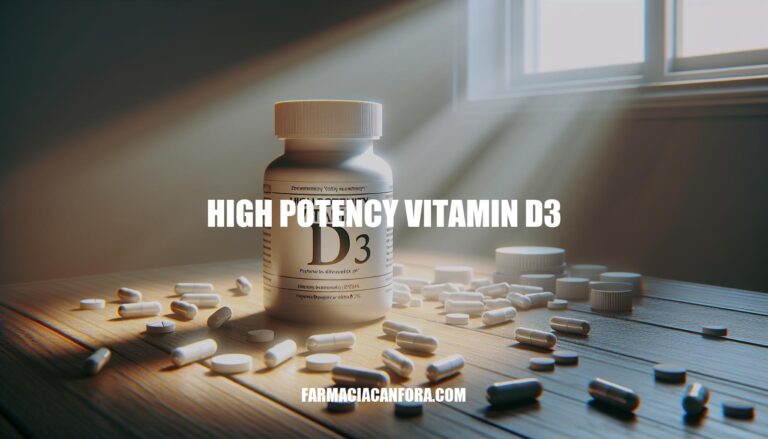


High-potency vitamin D3, also known as cholecalciferol, is a powerful form of vitamin D that plays a crucial role in maintaining overall health. It is essential for bone health, as it helps the body absorb calcium more effectively. Additionally, vitamin D3 supports the immune system, enhances muscle function, and contributes to heart health. Ensuring adequate levels of this vitamin can help prevent deficiencies that may lead to conditions like osteoporosis, weakened immunity, and mood disorders.
Here are the specific health benefits of high-potency vitamin D3:
High-potency vitamin D3 can be particularly beneficial for those with deficiencies or specific health conditions requiring higher doses.
: Verywell Health
: Dr. Berg
Here are the main sources of high potency vitamin D3:
Supplements: Available in various forms like capsules, tablets, and liquid drops. Vitamin D3 (cholecalciferol) is often preferred for its potency and effectiveness.
Fortified Foods: Commonly include milk, orange juice, cereals, and plant-based milk alternatives like soy, almond, and oat milk. These foods have vitamin D added during processing.
Natural Sunlight Exposure: Your skin synthesizes vitamin D3 when exposed to UVB rays from the sun. This is a natural and effective way to boost vitamin D levels.
Potential Side Effects:
Interactions:
Always consult with a healthcare provider before starting or adjusting your vitamin D3 dosage to ensure it’s safe for your specific health needs.
Here are some tips for selecting a high potency vitamin D3 supplement:
High-potency vitamin D3, also known as cholecalciferol, is essential for maintaining overall health, particularly bone health, immune system function, and heart health.
It enhances calcium absorption, regulates bone formation and repair, and supports the immune system’s ability to fight infections. Vitamin D3 also contributes to mental health, muscle function, and skin health.
Those with deficiencies or specific health conditions may benefit from high-dose supplementation under a healthcare provider’s guidance. Recommended daily intake is 1,000-2,000 IU for most adults, while high-dose supplements should only be taken as prescribed.
Safety considerations include potential side effects and interactions with medications and health conditions.
When selecting a supplement, look for third-party testing, choose D3 over D2, avoid unnecessary fillers or additives, and opt for well-known brands with positive reviews.